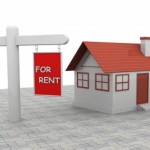
Whether you are thinking of purchasing your first buy-to-let property or are an experienced landlord there are number of things you need to do to ensure your investment reaches its full potential and keeps within the law.
1. Do your research
Not all properties are suitable for a buy-to-let investment so you need to make sure that there is a demand for the type and location of the property you are looking to buy. Speak to estate agents and scour property portals such as Rightmove to find out which properties are in demand as well as get a feel for the amount of rental income you can expect to receive.
2. Decide what type of tenants you are prepared to accept
Do you want to let to students, single people or families and will you allow pets or not? These decisions will affect how easily it will be to let your property as well the potential cost of repairs and refurbishments. Think back to your student days and I am sure you will remember that looking after your rental property came pretty low down your list of priorities. On the other hand letting a property to students can produce a higher income as these properties are normally let on a 'per room' basis.
3. Do your sums
Rental income - once you have decided the type of property and the location you will have some idea of the likely purchase price. If you have done your research properly you will also have good idea of the likely rental income .
Mortgage - if you are requiring a mortgage to purchase the property you will need to some research on buy-to-let mortgages. This can simply be done here - speak to a mortgage adviser. You should then have an idea of mortgage costs on a monthly basis.
Using a letting agent or doing yourself - Letting agents can be worth their weight in gold but they come at a cost. Shop around to get the best deal and satisfy yourself that your chosen agent is professional and will look after your investment properly. If you decide to do the property management yourself then you will need to be well equipped to respond to tenant demands as well as keep on top of any rent arrears that occur.
Insurance - normal house insurance will not cover you if you if you are renting out a property. You will have to arrange a dedicated landlord's insurance to protect your investment and you may also consider taking out cover to protect yourself against defaulted payments.
Repairs and refurbishment - it is inevitable that repairs to your property will be required as well upgrading the facilities from time to time so you need to factor in an allowance for this in your budgeting.
Void periods - it is inevitable that there will be periods, between the time that one tenant moves out and another moves in, when you will not receive rental income. You will need to make an allowance for at least one month every year without rental income.
4. Get a good tenancy agreement
The tenancy agreement is an important document which sets out the rights of both the landlord and tenant. There are standard format agreements available on the internet but I would seek advice from a solicitor before proceeding with any agreement. Alternatively, if you are using a letting agent they will provide you with an approved tenancy agreement that they use which will save you the headache.
5. Handle deposits properly
All tenants deposits must be lodged with a dedicated organisation like the Deposit Protection Service. You have legal responsibility to use an authorised scheme and tenants can demand financial compensation if you fail to do so.
6. Understand your legal responsibilities
As well as protecting all tenants' deposits within an approved scheme there are a number of other legal responsibilities with which every landlord must comply.
Gas Safety - landlords must ensure that gas appliances, fittings, and flues are safe for tenants and that an annual safety check is carried out by a Corgi-registered gas installer. See here for more information - Gas Safety regulations
Electrical Equipment - all electrical equipment must be safe with operating instructions and safety notices supplied prior to a rental commencing. All equipment should be checked regularly by a qualified electrician. See here for more information - Electrical Safety regulations
Houses in Multiple Occupation - certain types of shared houses have to be licensed under special rules, which include extra fire and electrical safety standards. There is also a limit on the number of people who can occupy a property. See here for more information - Houses in Multiple Occupation regulations